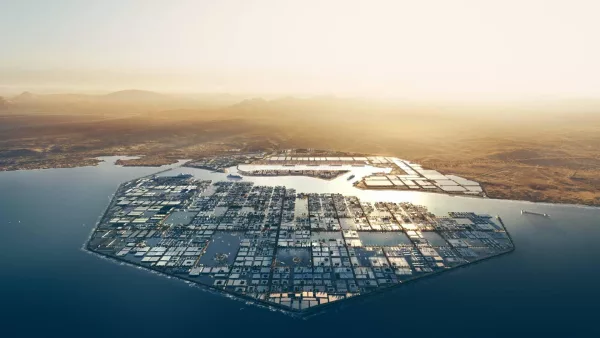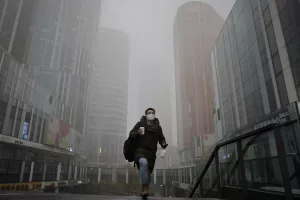Our world has always been in constant transition, yet as time goes on, the pressure for action to achieve a sustainable world becomes stronger, and our time for action is decreasing with each passing day. CO2 emissions increase daily, inequalities keep growing in emerging economies, and climate action by governments isn’t radical and innovative enough to create effective change. Our time for action is over, and yet governments don’t seem to comply with sustainable development agendas, exceeding six of the nine planetary boundaries. However, achieving carbon-neutral cities is possible; we have the technology and the resources to make it happen.
“The question led to knowledge, and knowledge led to action ”
Princess Haifa al Saud (MENA Climate Week 2023)
Saudi Arabia has shown the world its vision of a utopian world in which sustainable development complying with the United Nations 2030 agenda is achievable. The leading oil-producing country is aware that a transition towards renewable energies is crucial for the world. For the future development of the Kingdom’s economy and eventually the planet, there is a need to diversify the economy, find new resources to export and create an economic development without being dependent on a limited natural resource.
Fueled by 500 billion USD from Saudi Arabia’s public investment fund, NEOM is a totally planned new economic zone and development in the Northwest Region of the Kingdom. Planned in 26,000 sqm to create new ecosystems, it reimagines the future of urbanism and unlocks solutions not only by creating new economic sectors but by offering solutions to create a better future and address global challenges.
NEOM’s proposal to address global challenges
The planned projects include not only The Line, the company’s most ambitious megaproject, but also the construction of Trojena, a tourist destination in the NEOM mountains, Sindalah, a high-end holiday destination located on an island and the hexagon, an industrial city planned to be the middle eastern capital of technological innovation. Additionally, it presents Enowa, the world’s largest hydrogen-based electricity production network, which plans to provide all of NEOM’s developments with 100% sustainable energy, neutralising the region’s carbon emissions and setting the Kingdom of Saudi Arabia on the map for a clean energy transition.
The Line, which plans to house around 9 million inhabitants, will be powered entirely by energy produced by green hydrogen, thanks to Aramco’s investment in hydrogen production and Enowa’s electricity production network. Saudi’s vision is not only to have carbon-neutral developments but also to reimagine human mobility and livability in communities that do not require the use of automobiles or vehicles that degrade air quality.
The Hexagon proposes an industrial innovation and technology development city that plans to be the trade and development capital of the Middle East and provide the central city, The Line, with all the resources necessary for a city of this magnitude. NEOM plans to be the example of an economic region the size of Belgium in renewable energy operation, with a zero carbon footprint and where 95% of its territory is a nature reserve, protecting the ecosystems of the surrounding areas.
It’s achievable, but?
Such an ambitious project and utopian vision raise questions about the emerging social structures and how the system will function in a confined city that plans to accommodate such a large number of people. Saudi Arabia has the investment to create this project and the technology; therefore, the debate shouldn’t be whether NEOM is possible to develop because it is. We should go beyond and try to understand how the political system will function within the area, how the international community will be able to exercise individual freedom in a confined environment, what will be the level of surveillance and control of the inhabitants, and how NEOM plans to bring 9 million inhabitants into the region.

One of the questions is how this region plans to tackle inequality. If the model to attract inhabitants is through the sale and rental of properties under the classic real estate structure, only a percentage of the world’s population will be able to afford to live in this region. This will create polarisation with the rest of the population of Saudi Arabia, where high-income citizens will be able to afford a life within the region. The rest of the inhabitants and workers will have to live outside of it.
However, if the government decides to opt for a model in which the government provides housing to the inhabitants, this would be a model based solely on communist structures where private property does not exist. Everything is government-owned, limiting the individual freedom of the inhabitants and creating a democratic backlash.
Moreover, should we consider a city sustainable if it’s fully funded by oil money? And if NEOM plans to accommodate wealthy citizens, at least in developments like Sindalah and Trojena, to what extent can we call these areas sustainable when the top 5% of the income bracket are the ones that produce the most of the CO2 emissions.
Another concern stems from NEOM’s proposal to use artificial technology and digitisation in its developments and how the excessive use of these can limit the inhabitants’ privacy. NEOM promises developments one hundred percent planned and designed by world-leading technology, which is why the level of privacy is concerning. Especially in the fourth technological wave, where systems of face recognition, surveillance, voice recognition, and mobile phone tracking, among others, are becoming much more advanced, they can eventually pose a threat to the individual freedom of the inhabitants of the region and to democracy by exceeding the control of citizens through technology.
Saudi Arabia challenging conservatism and limited individualism?
Finally, how open will Saudi Arabia be to Western values if planning to accommodate an international community? We know that developed Western countries have a much higher level of liberalisation, where women have the same rights and obligations as men, and LGBTQ+ is widely accepted. Freedom of expression is one of the foundations of individual rights in the Western world. Western legal systems have a secular approach to Law enforcement, and certain drugs are legal in some countries.
In Saudi Arabia, although there has been progress regarding gender equality, gender roles are still much more traditional, emphasising conservative family structures. LGBTQ+ is criminalised and widely unaccepted in society. The legal system is based on Islamic law (sharia), where capital punishment is allowed, and courts regularly sentence people to death. Freedom of expression is limited by strict censorship against government criticism. Alcohol and drug consumption are strictly forbidden Lastly, social and moral values emphasise traditional conservative structures in society.
With NEOM, Saudi Arabia has set the example of transitioning towards less oil dependency and transforming the country towards a country fueled by hydrogen with net zero regions. Indubitably, such developments go beyond the traditional school of urban planning, reimagining the structure of a region in transition. These developments set the international blueprint of what the future of urbanism may look like in a world where environmental hazards become more prominent; in a world where immediate action is needed to roll back the violation of planetary boundaries.
However, there are still questions to be resolved in terms of political structure: What will be the level of openness to an international community? What will the level of individual freedom be among its citizens? What impact will this development have on issues unrelated to sustainability but to other social issues within the country? The world awaits to discover.
Want to know more information about NEOM? visit https://www.neom.com/en-us







